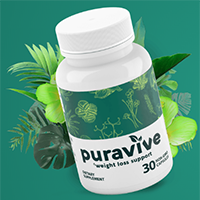Debunking the Myth: The Reality About Seed Oils and Inflammation
In recent years, seed oils have found themselves at the center of a heated debate within the wellness community. Claims have circulated suggesting that these oils — including soybean, canola, corn, and sunflower oils — are pro-inflammatory agents contributing to various health issues. However, a closer examination of scientific evidence reveals a more nuanced picture that challenges these sweeping assertions.
The Basis of the Claim
The controversy surrounding seed oils primarily hinges on their composition. These oils are rich in polyunsaturated fatty acids (PUFAs), particularly omega-6 fatty acids, which have been implicated by some as promoting inflammation when consumed in excessive amounts. Critics argue that a high intake of omega-6 fatty acids, relative to omega-3 fatty acids, may skew the body’s balance towards an inflammatory state, potentially exacerbating conditions like cardiovascular disease, arthritis, and other inflammatory disorders.
What Science Says
However, the scientific consensus tells a different story. A comprehensive review of the evidence, as seen in studies published in reputable journals such as the American Journal of Clinical Nutrition and Journal of the American Heart Association, indicates that the consumption of seed oils does not inherently increase inflammatory markers in healthy individuals. In fact, when consumed as part of a balanced diet, these oils can contribute to a healthy nutritional profile.
-
Omega-6 Fatty Acids and Inflammation: Research has shown that while omega-6 fatty acids can be converted into pro-inflammatory compounds, they can also lead to the production of anti-inflammatory markers. The effect of omega-6 fatty acids on inflammation appears to be complex and not solely pro-inflammatory as often claimed.
-
The Role of Linoleic Acid: Linoleic acid, a type of omega-6 fatty acid found abundantly in seed oils, has been the subject of numerous studies. Contrary to claims of its inflammatory potential, research indicates that linoleic acid has a neutral or even beneficial effect on cardiovascular health.
-
Comparative Studies: Studies comparing diets high in saturated fats with those high in PUFAs (like those from seed oils) have consistently demonstrated that PUFA-rich diets are associated with lower markers of inflammation and reduced risk of cardiovascular disease.
Context and Balance
It’s essential to consider the broader dietary context. The inflammatory potential of a diet does not hinge on a single nutrient or food item but rather the overall dietary pattern. Diets rich in fruits, vegetables, whole grains, and lean proteins, complemented by healthy fats from various sources — including seed oils — are widely recognized for their health-promoting qualities.
Conclusion
The narrative that seed oils are inherently inflammatory is not supported by the weight of scientific evidence. While it’s crucial to maintain a balanced intake of omega-6 and omega-3 fatty acids for optimal health, demonizing seed oils overlooks their potential benefits and the complexity of human nutrition. As always, moderation, variety, and balance are key tenets of a healthy diet.


